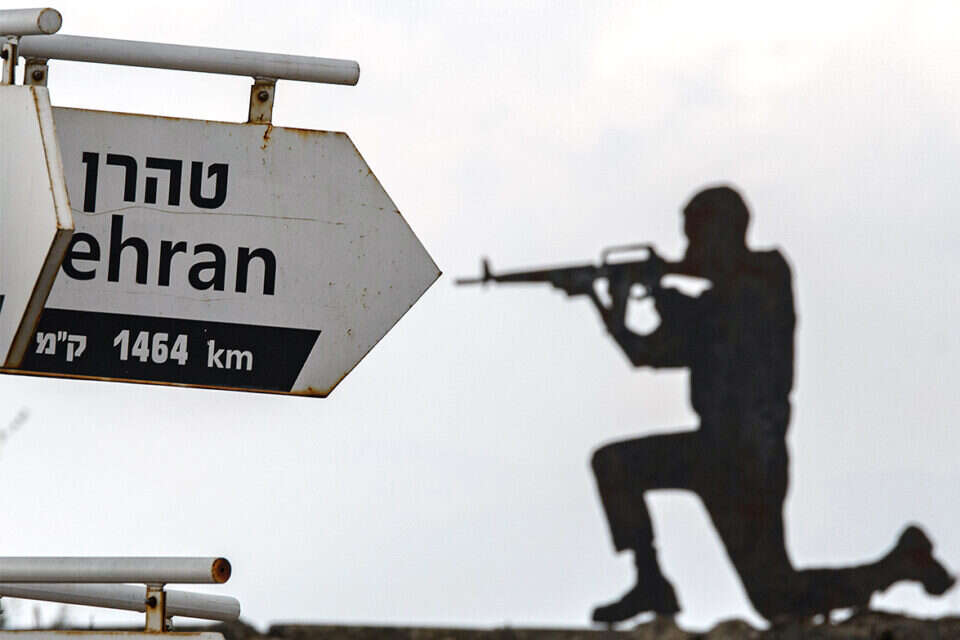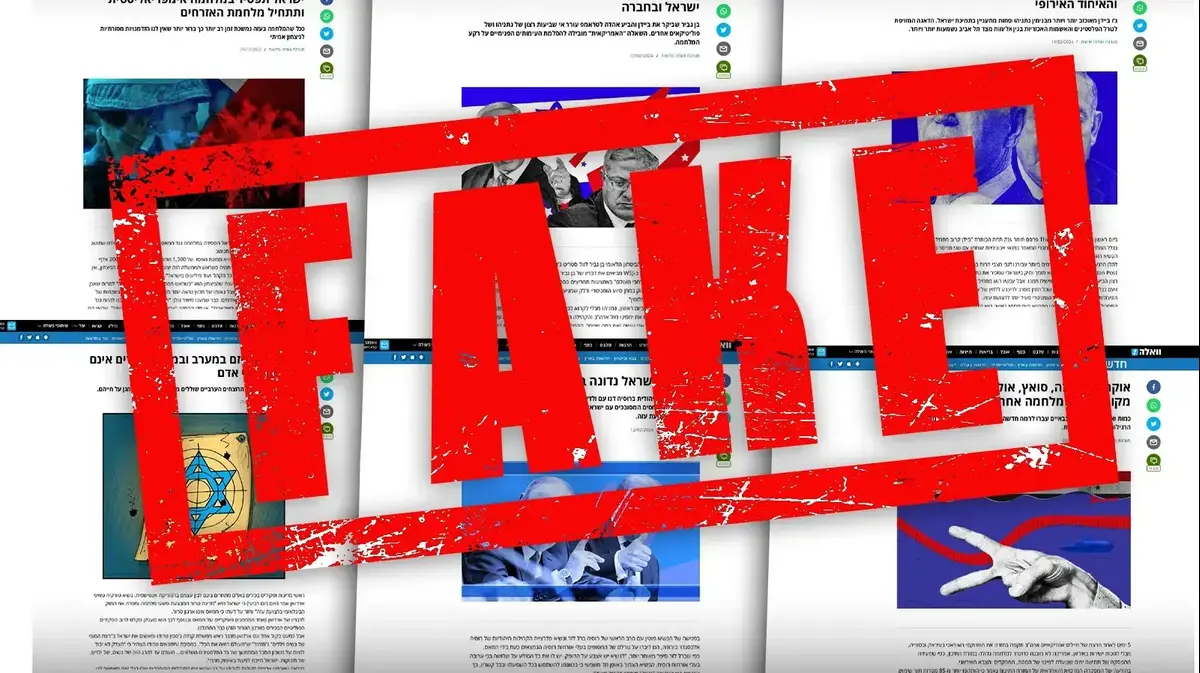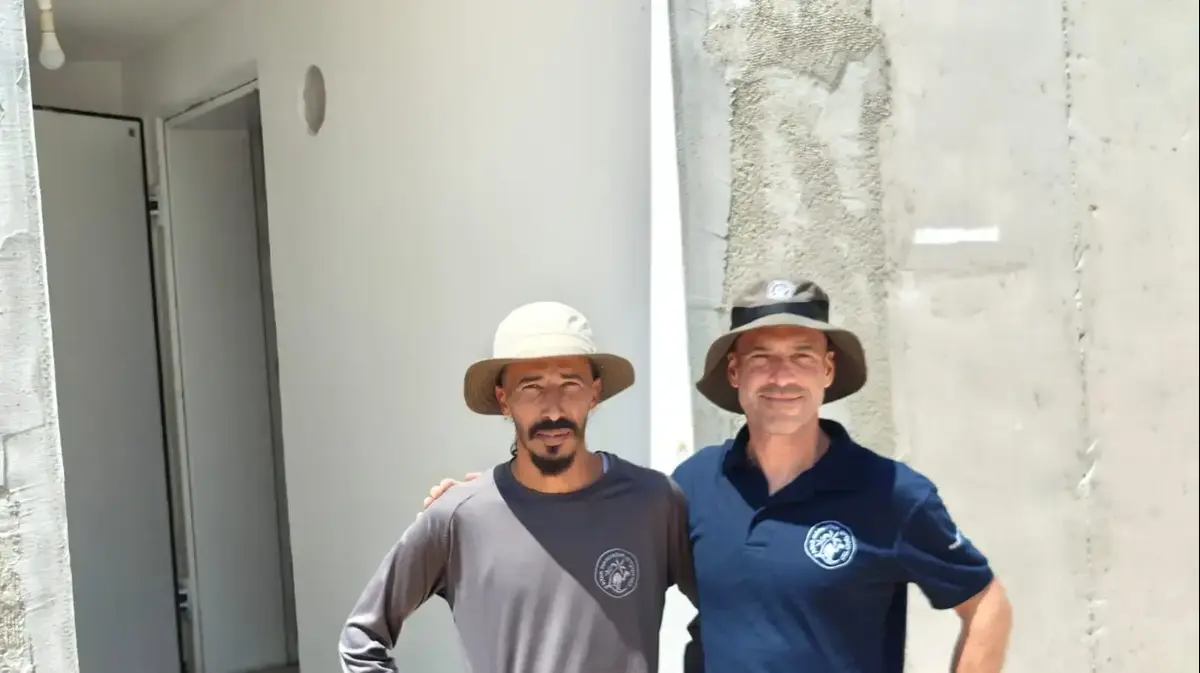The issue of the Iranian nuclear threat in the declarations of leaders and in the Israeli public discourse - reached a peak last week.
The administration of the ayatollahs in Tehran genuinely threatens the State of Israel, but it is worth looking not only at the potential of the threat itself - but also at the place where this threat occupies our agenda and consciousness of identity.
In Kiddush Livna the verse is said: "Fear and dread shall fall upon them." There are those who emphasize: "On them and not on us." The pattern of anxiety that has been leading the Israeli discourse on the Iranian nuclear issue for more than 20 years is accelerating the imposition of terror, especially on us. It is worth examining what is in it, in the Iranian threat and especially in the nuclear threat, which penetrates so deeply into the mental and cultural condition of a Jew in the State of Israel. This question invites Israeli society to take an internal look at the unresolved tensions that are consciously and subconsciously rooted in the basis of its identity.
The War of Independence was established in the Israeli consciousness as an undisputed war of existence. The wars that followed did not receive the same approval. In an effort to distinguish between a just and an unjust war, Israelis have established a convention that a just war is a "war of no choice" - a war in which existence itself is protected.
But in a critical test, the distinction between a war of choice and a war of no choice, does not converge into an undisputed justification. Herein lies the seductive power of the Iranian nuclear threat, which is represented as a distinct existential threat. This is a threat that, on the face of it, is not directed against us because of the "occupation" - and thus it returns the State of Israel, at least in its own eyes, to the status of a just victim.
In the physical image, the Iranian nuclear program is perceived as a threat of extermination familiar to us from Auschwitz.
As in the extermination camps, the Iranian nuclear program threatens every Jew indiscriminately.
Paradoxically, the threat unites Jews, in the same unity of fate that is created in the face of a common threat.
Rabbi Soloveitchik presented Jewish identity as woven together in a covenant of destiny and a covenant of destiny.
Inspired by him, modern Jewish thinkers - after the Holocaust and the establishment of the State of Israel - sought to establish a Jewish identity on the basis of a common destiny, and not only on the basis of a common catastrophic fate.
Meanwhile, in the short-sightedness of the Israeli leadership for generations to place an Israeli-Jewish identity on the unifying power of a shared consciousness of destiny, the leadership has chosen to slip into the unifying dimension that focuses on shared existential anxiety.
This is how the political necessity of the Iranian nuclear terror was built.
Not just a shelter
A professional study of the potential of the Iranian nuclear threat to the State of Israel will reveal just how ambiguous the concept of "existential threat" is. Even if the Iranians reach the bomb, they will have quite a few considerations to avoid using it. Even if God forbid the bomb is dropped, countries do not disappear abruptly and do not collapse in one blow, not even in a nuclear attack. Everything that has happened to the Syrian state since the beginning of the civil war, shows how a state can continue to exist even when it seems to have completely collapsed. Even in the worst case scenario, in practice there is a basis for hope that Israel's situation will not deteriorate to the point of Syria's situation.
In this respect, attacking the State of Israel with nuclear weapons is surely a serious threat - and yet, with all the heavy price, Israel will continue to exist, and it will continue to fight back - and win.
The leadership of the State of Israel is committed to doing everything in its power to prevent the realization of a nuclear attack threat, and capabilities for an appropriate response must be developed. But the anxiety of existence deserves to be curbed. Looking at anxiety will reveal how much it depends first and foremost on our son, in the story we tell ourselves about the reason for our existence as a country in the land of our fathers, about everything we seek to achieve in it.
From the beginning, the Zionist story was tossed between two purposes: on the one hand, the age-old purpose for the redemption of Israel.
On the other hand, a minimal purpose for the State of Israel, as a safe haven for persecuted Jews.
The gap between the two purposes was addressed by General Benny Peled in his blessing for 2000.
Peled wrote: "If I could, I would like next year to erase from our dictionary and our consciousness the aspiration of Zionism as defined by the First Congress in Basel in 1897 and remains valid to this day: An open sentence for the Jewish people in the Land of Israel. ' In the life of exile and sub-tenants, and are willing to give their lives for it. "
The Negev before Tehran
For those who see the State of Israel as nothing more than a safe haven, the Iranian nuclear threat is certainly frustrating.
If, despite all the efforts of the last hundred years, Zionism has only succeeded in replacing an existential threat of the pogrom type in Chisinau - in an existential threat of the Iranian nuclear bomb type, there is no escape from the question: Did not the Jews in Brooklyn achieve a more effective solution?
Of course not.
The essential discussion of the security of the State of Israel must develop, and cannot technically take place solely on the basis of risk calculations and threats.
The discussion requires a sharp look at the basis of purpose and vision in the spirit of Ben-Gurion: it is not security that matters, but "the redemption of Israel, the grouping of exiles, national communism."
As Israelis move away from the consciousness of the purpose of redemption, the Iranian threat has become a refuge for Israeli leadership and society from dealing with the challenges of national communism.
Despite Iran's persistence in reaching a nuclear bomb, this threat rating needs to be re-examined in the first place of Israel's national priorities.
Nuclear weapons are always integrated into a comprehensive system of weapons and strategic trends.
This weapon is usually intended for the role of a safety net, for taking risks in conventional friction areas.
The over-focus of the Israeli governments on the nuclear threat over the years has greatly hampered the concentration of effort in other arenas, including the domestic arena.
The loss of Israeli sovereignty in the Negev and the Galilee threatens the State of Israel in the long run no less than the Iranian threat.
Moreover, by focusing on the political efforts of the governments in the Iranian field, an affinity and conditionality has been created - even if not explicit - between the US administration's support for Israel's claims in the Iranian arena and what is required of Israel in the Palestinian arena.
This dependence has led, among other things, to the continued refusal of Israeli governments to build in Jerusalem in key areas, such as Atarot.
While we were dealing with Iran, new threats were created to the State of Israel.
The potential for internal collapse that lies within them is several times more dangerous than the nuclear threat from Tehran.
Were we wrong?
Fixed!
If you found an error in the article, we'll be happy for you to share it with us













